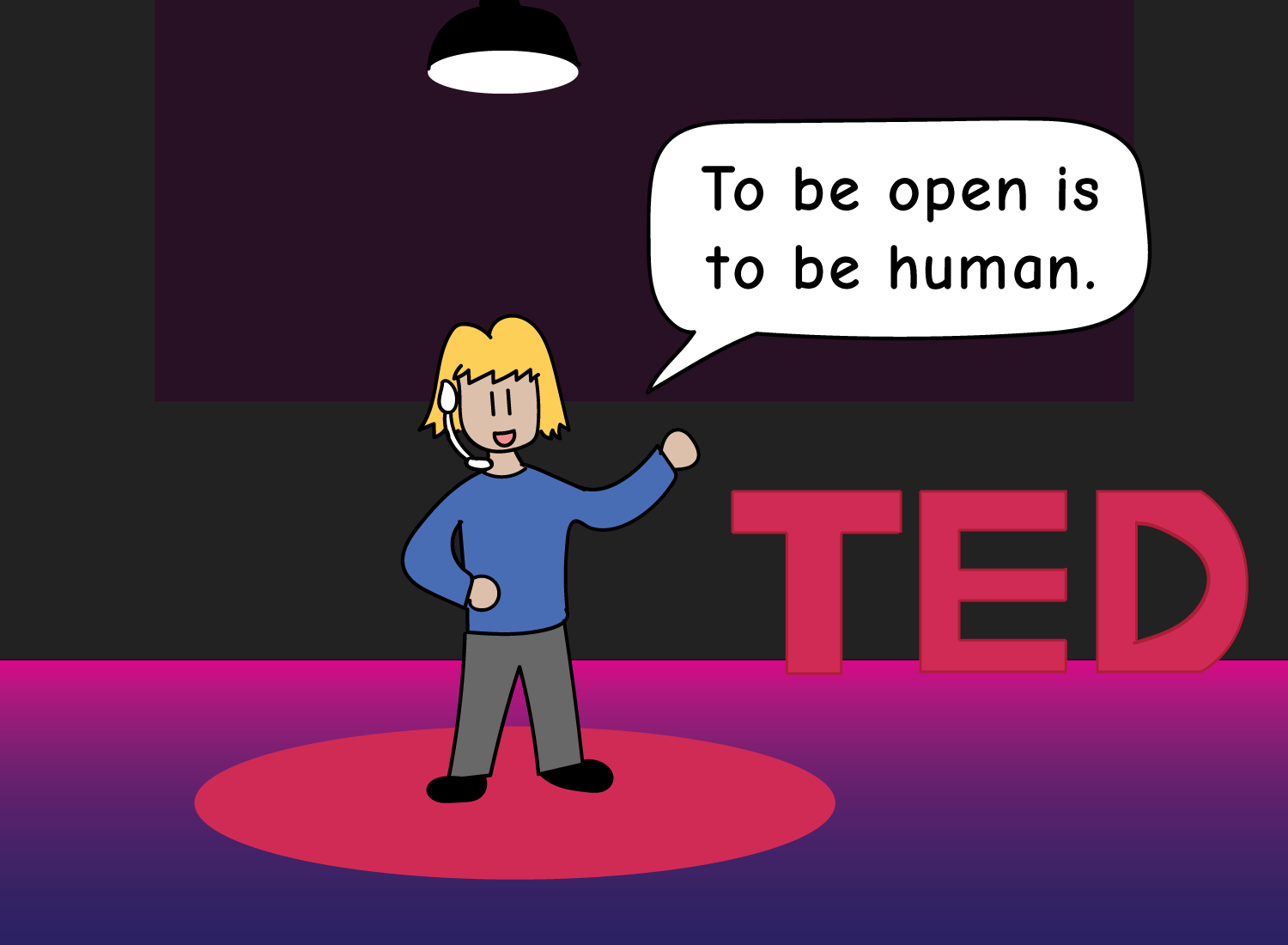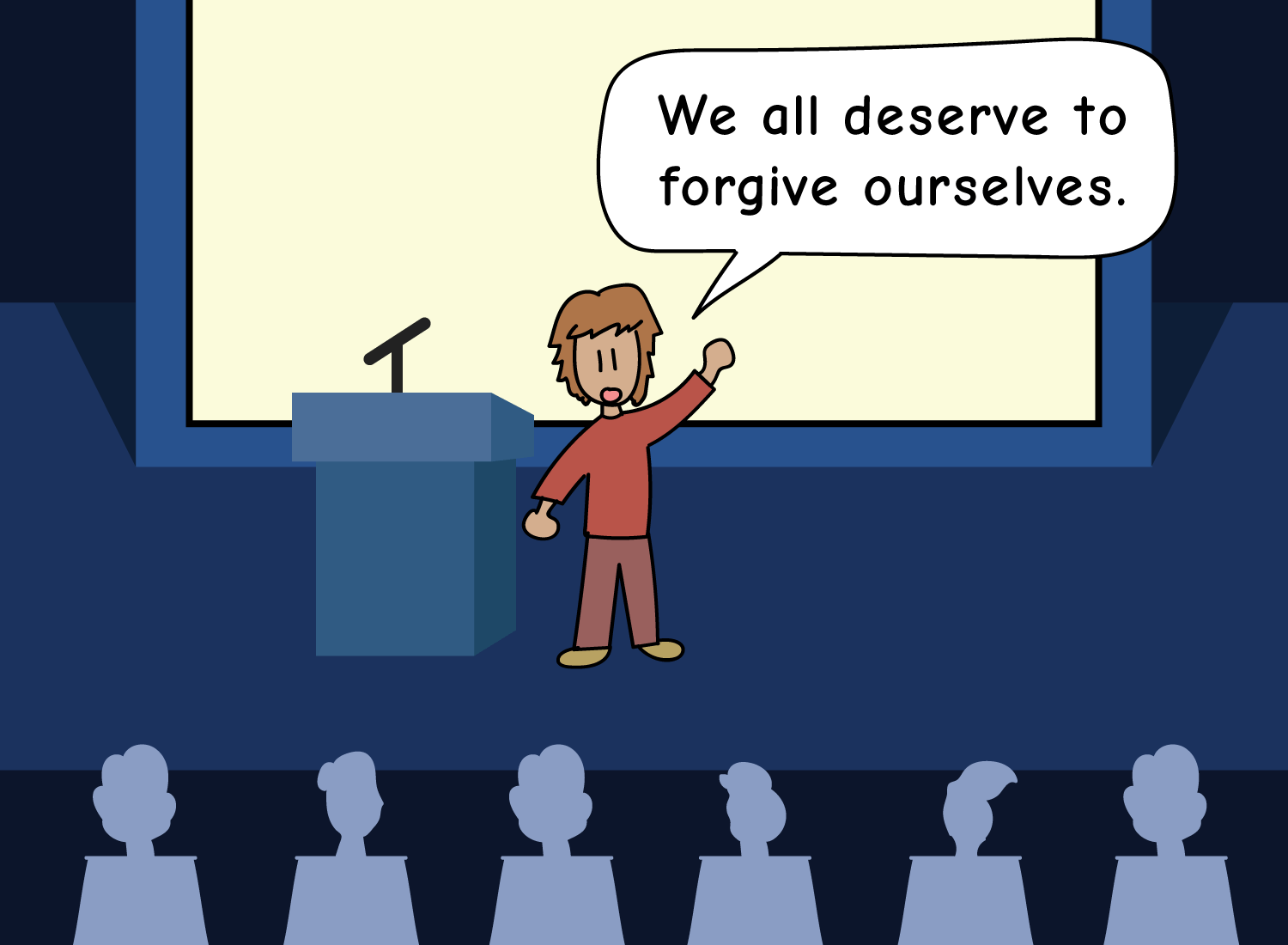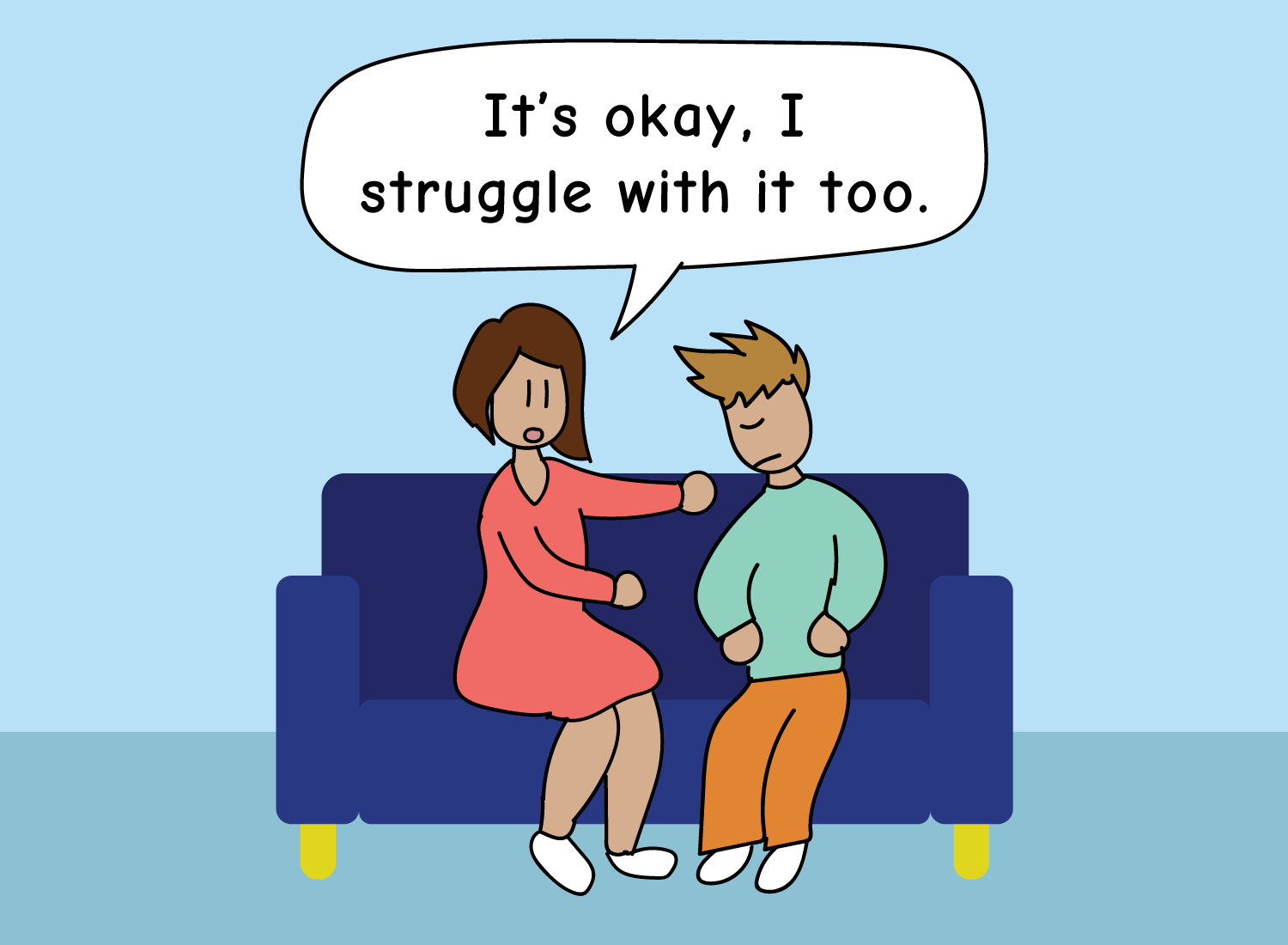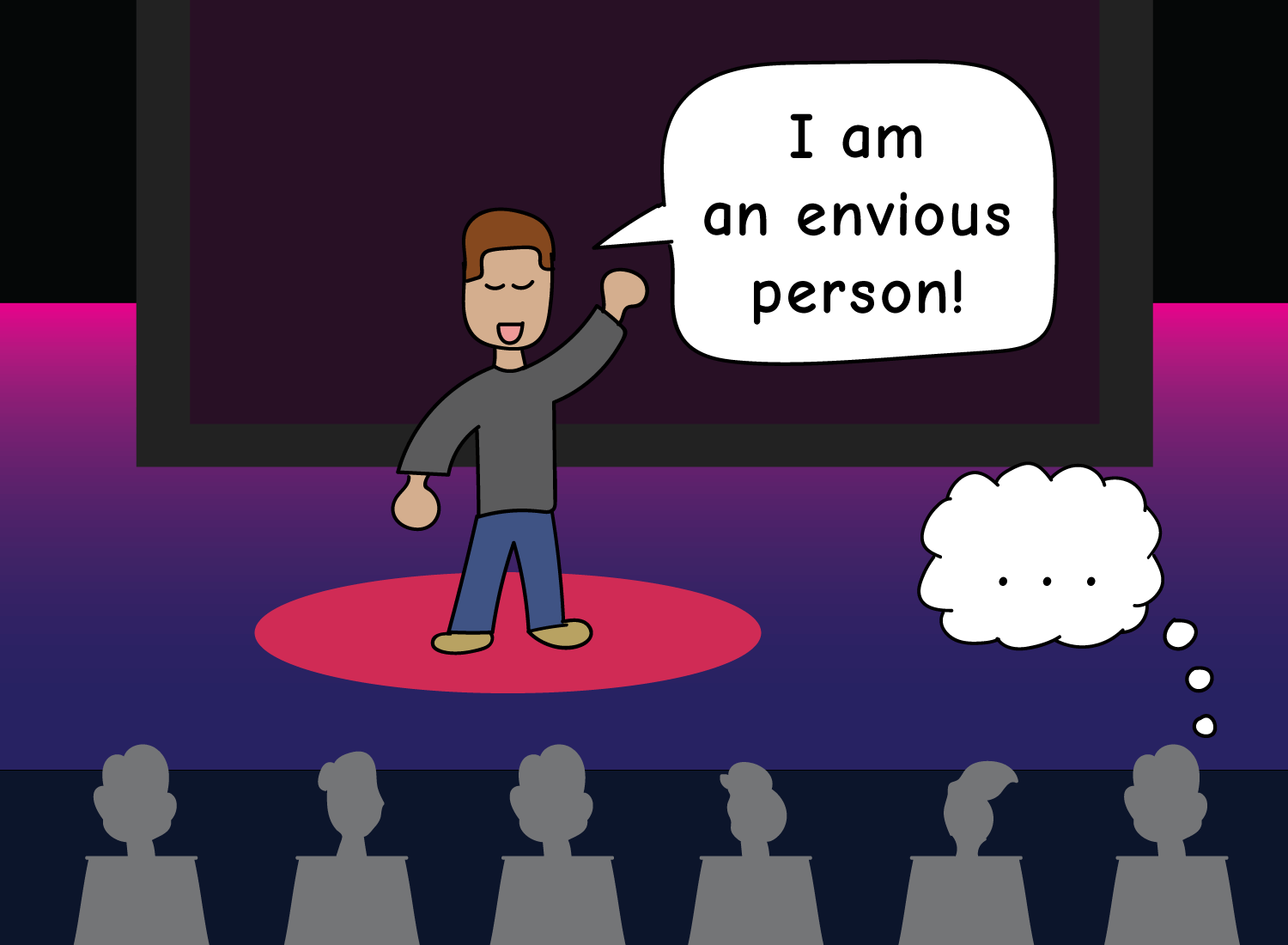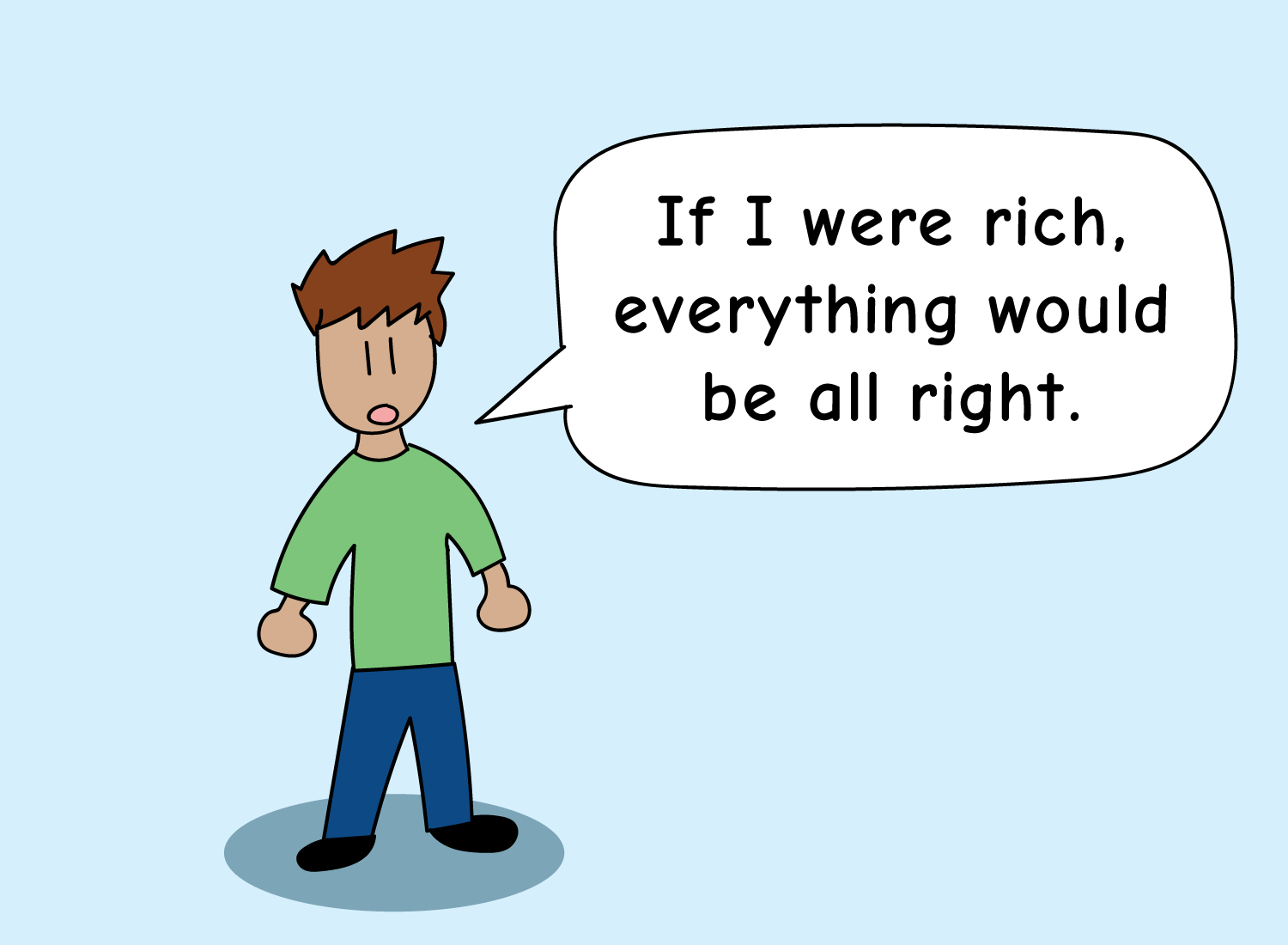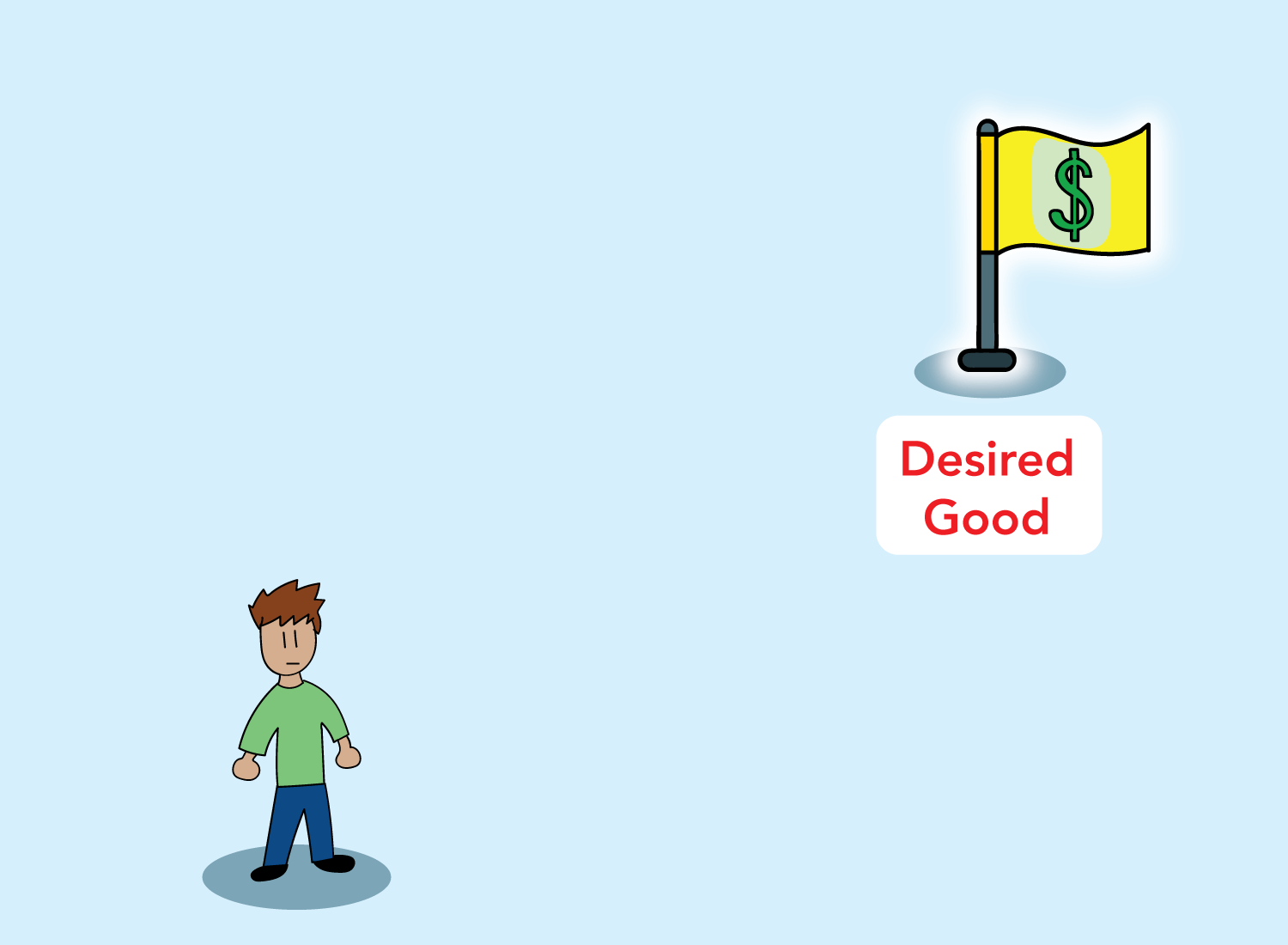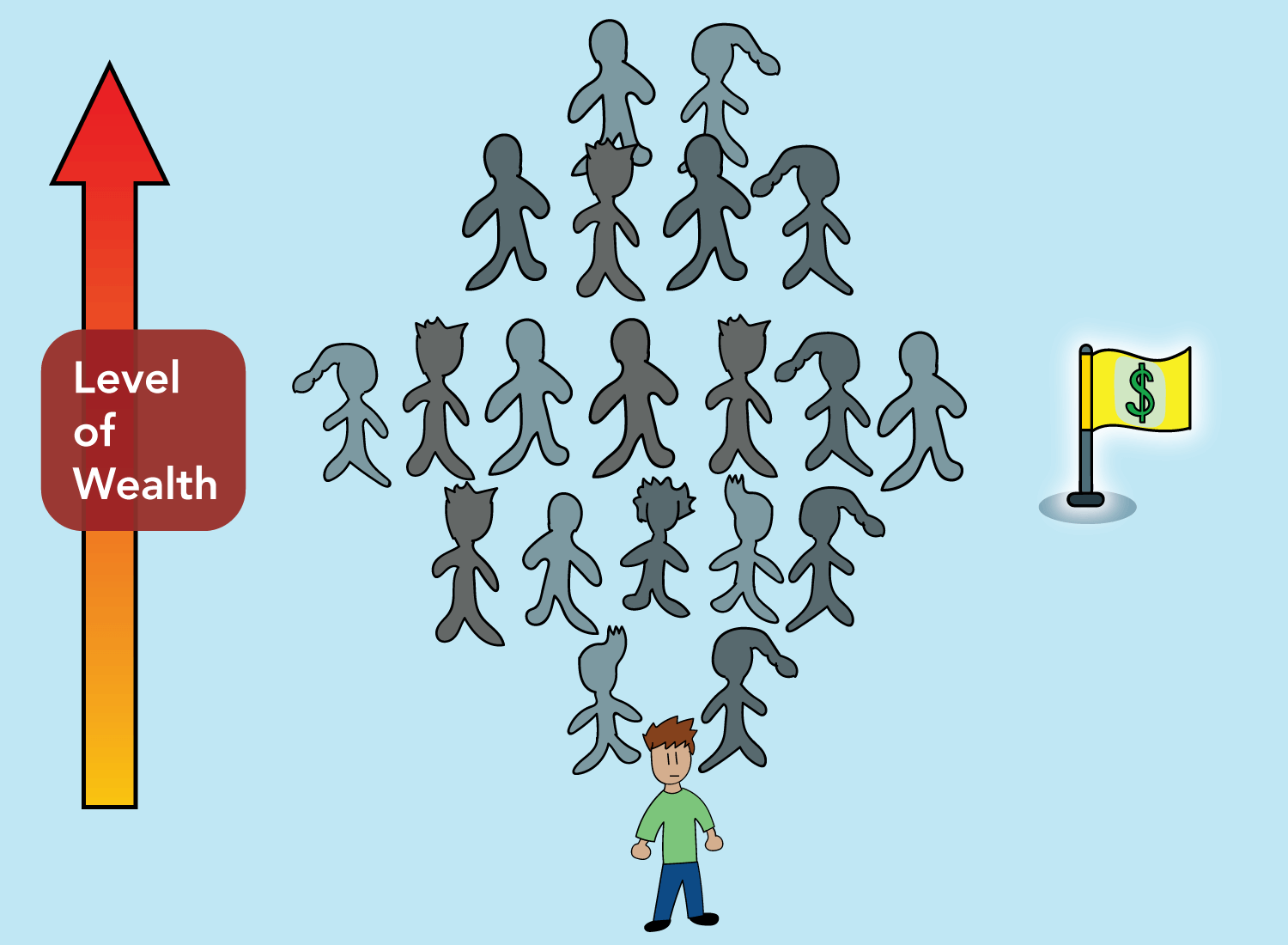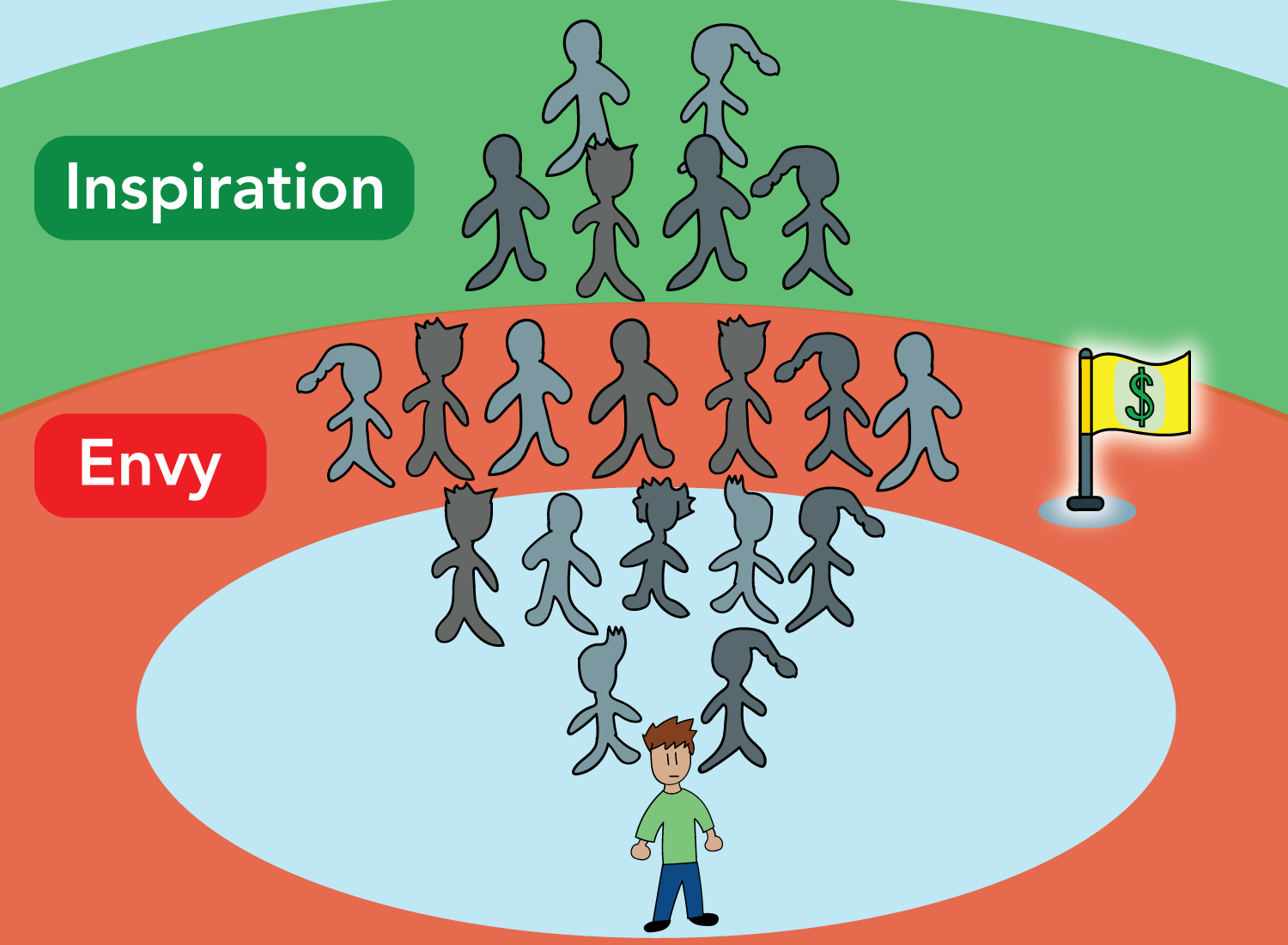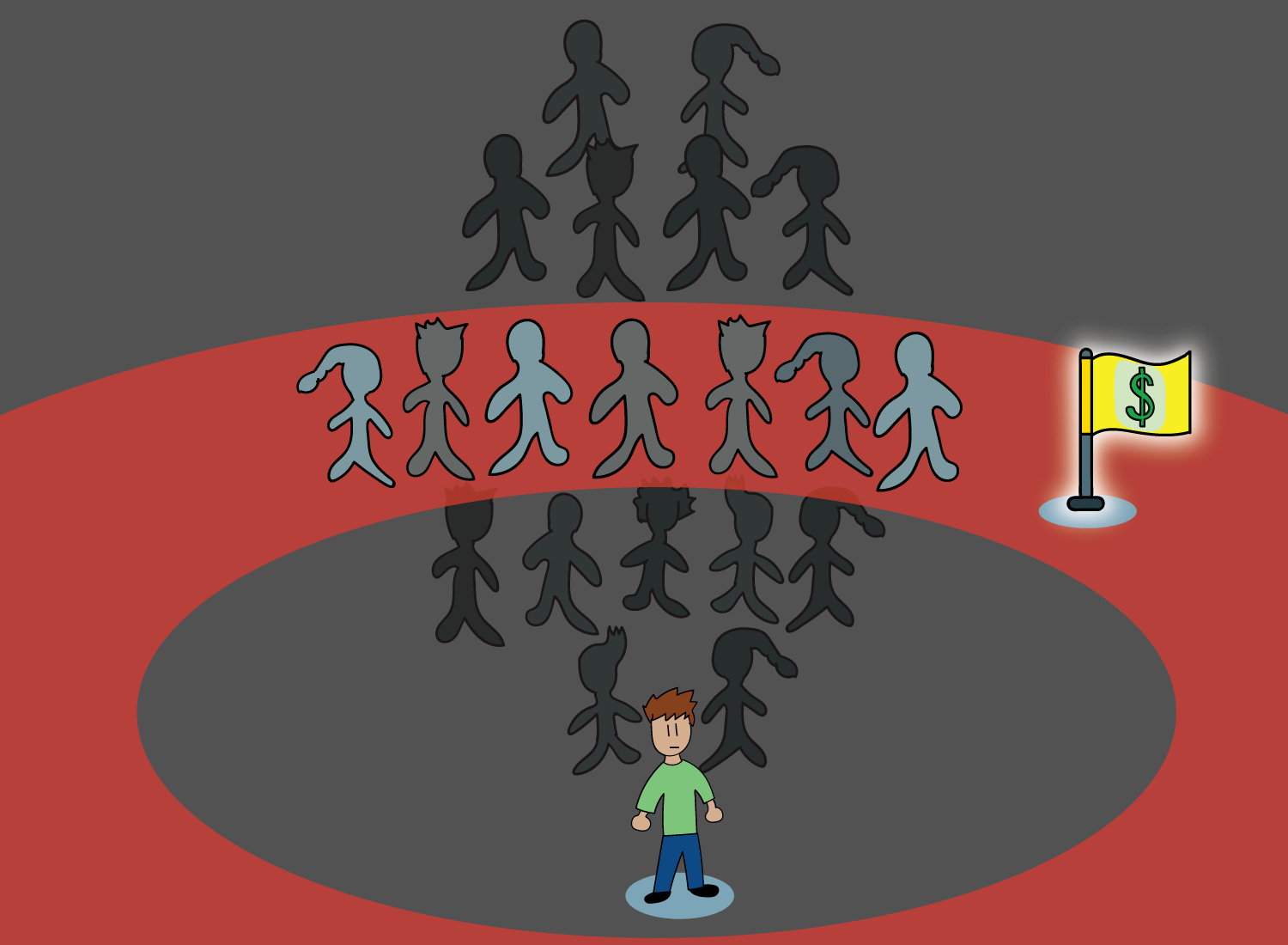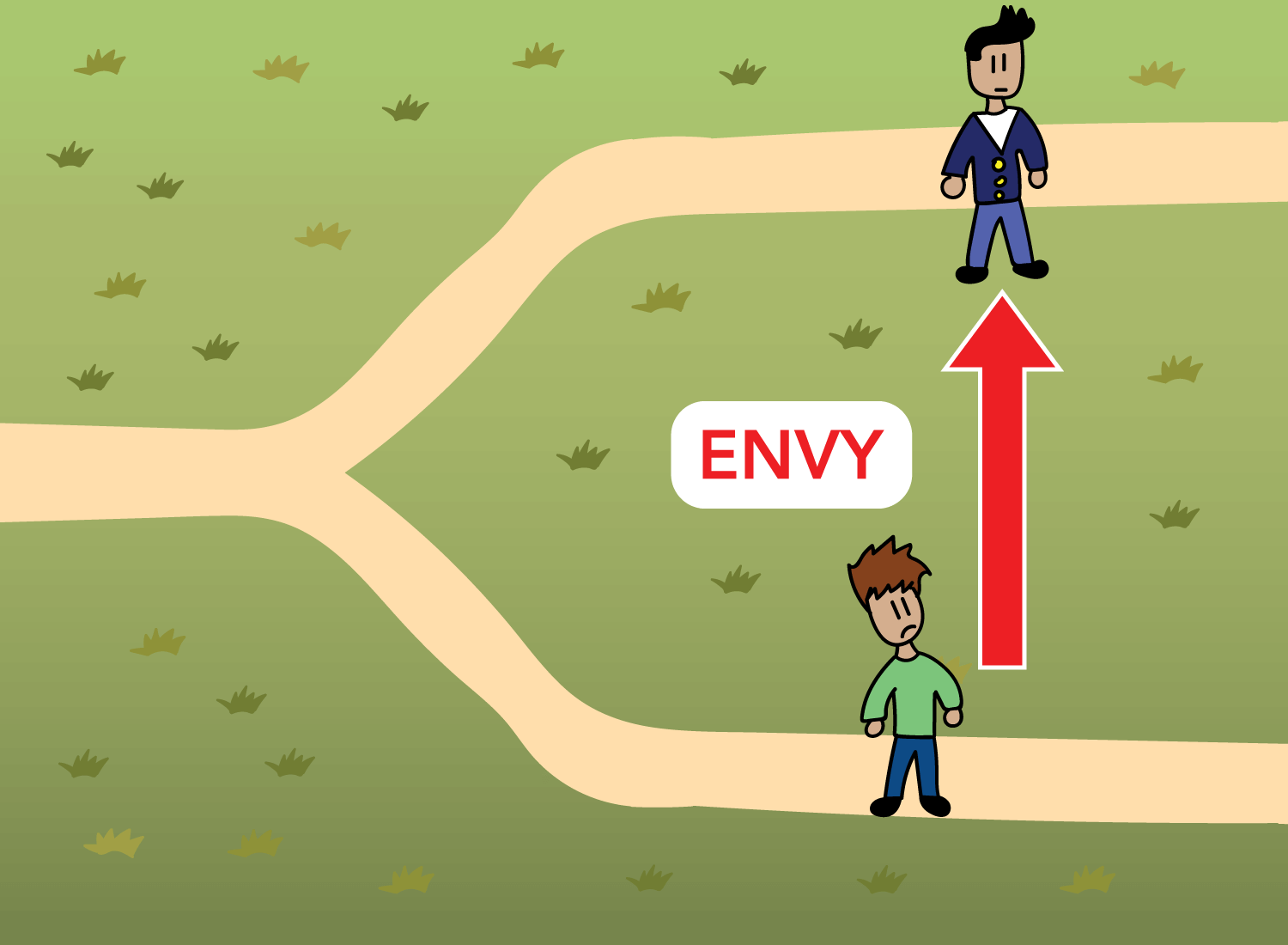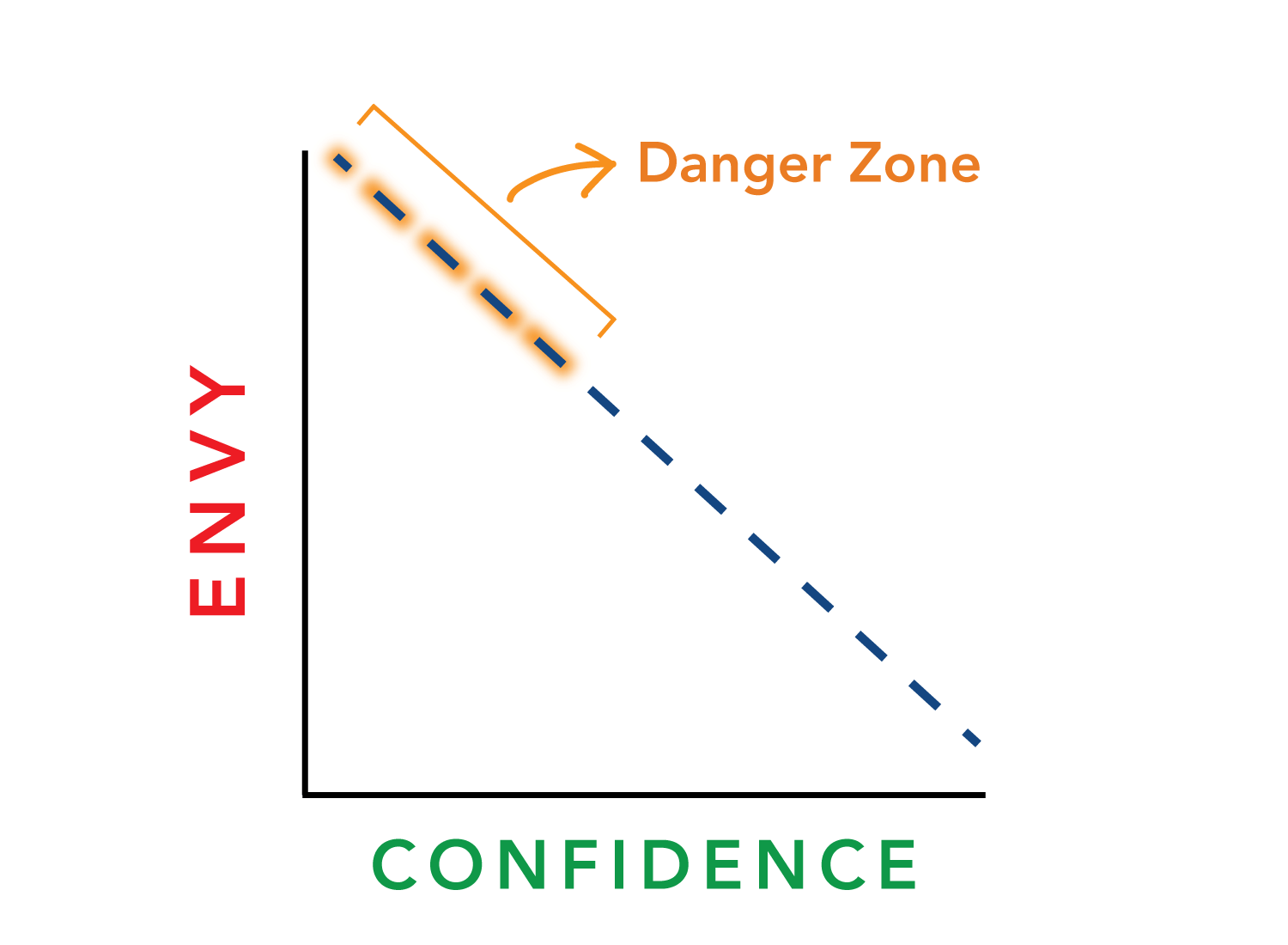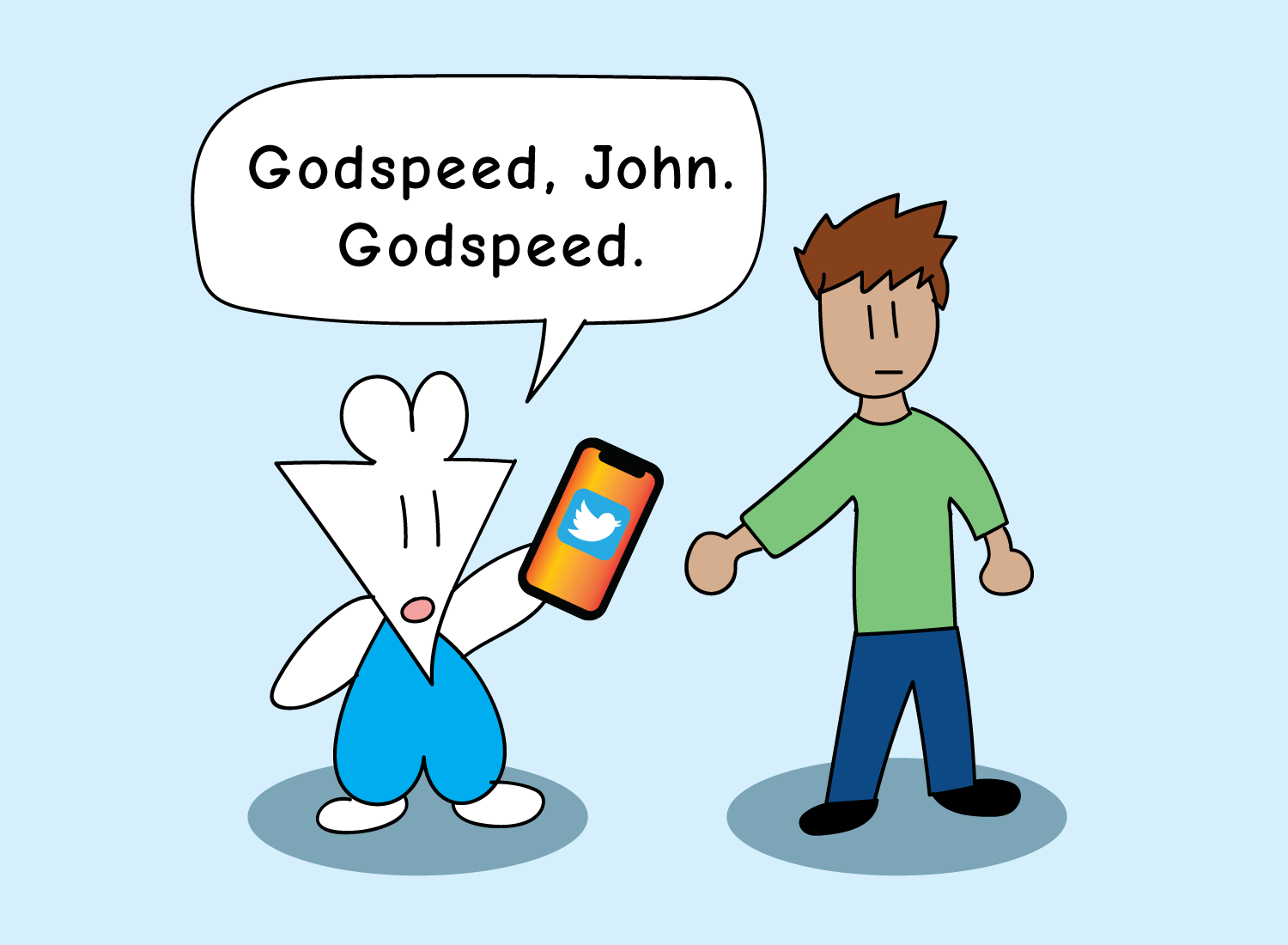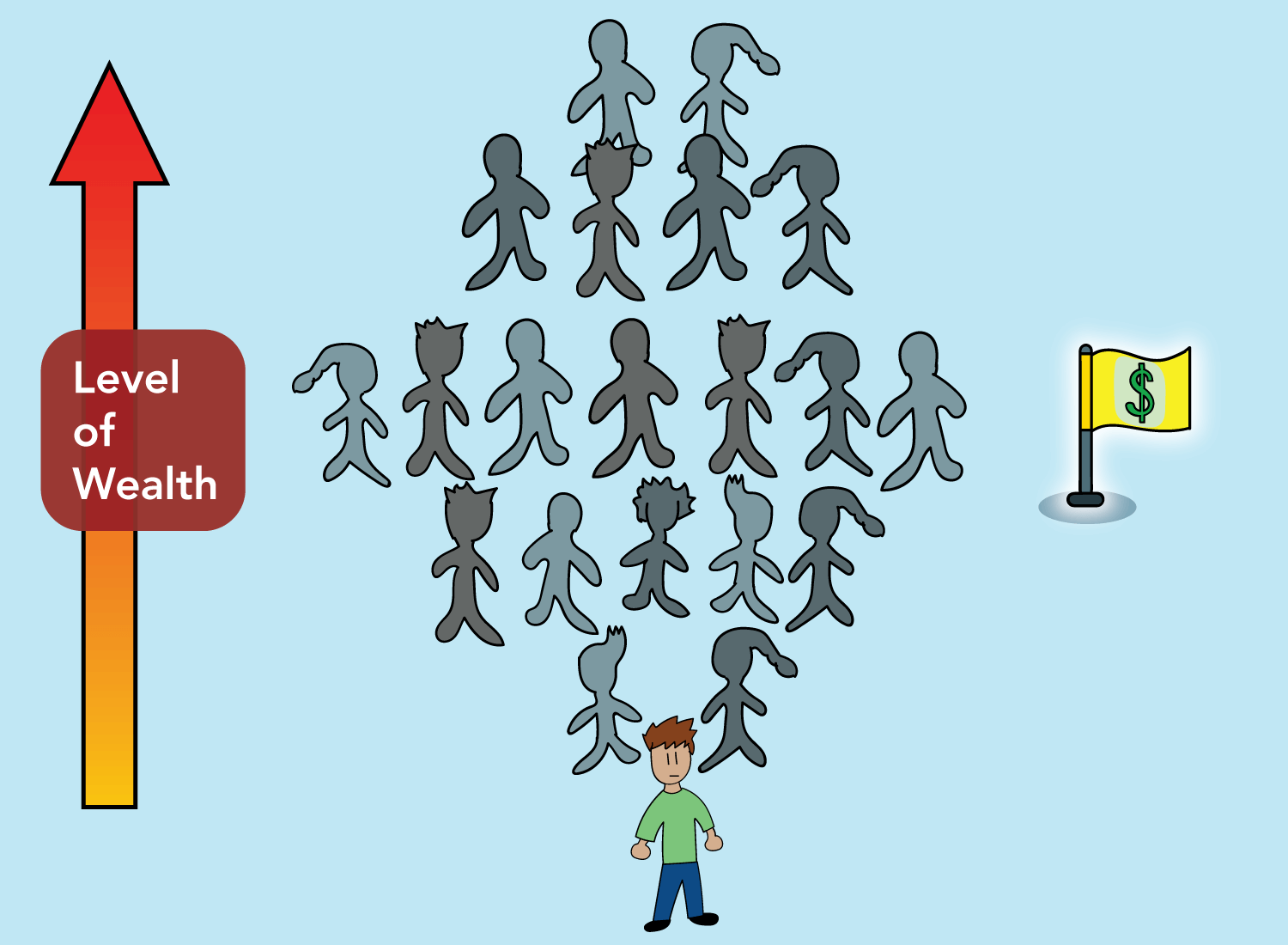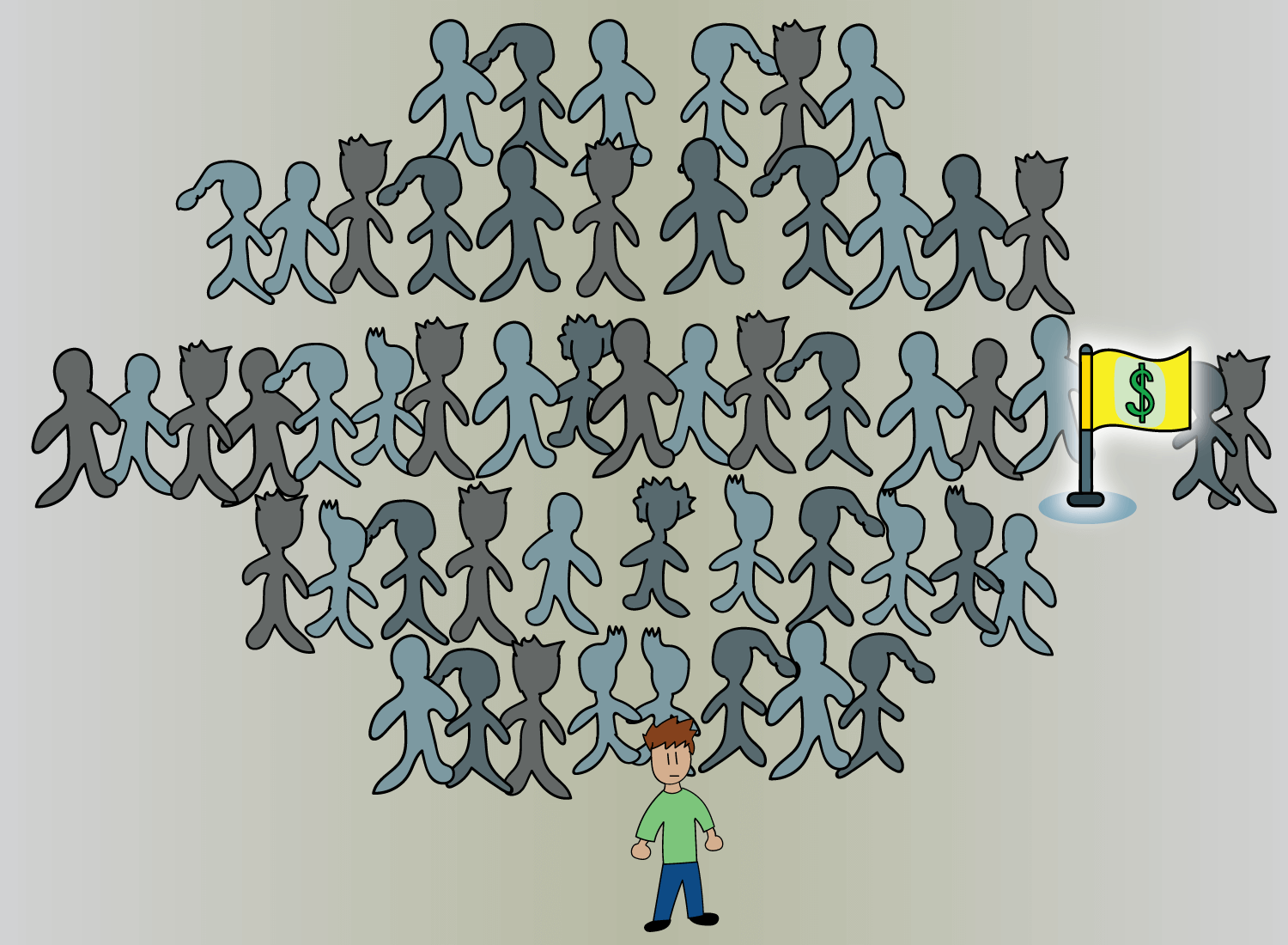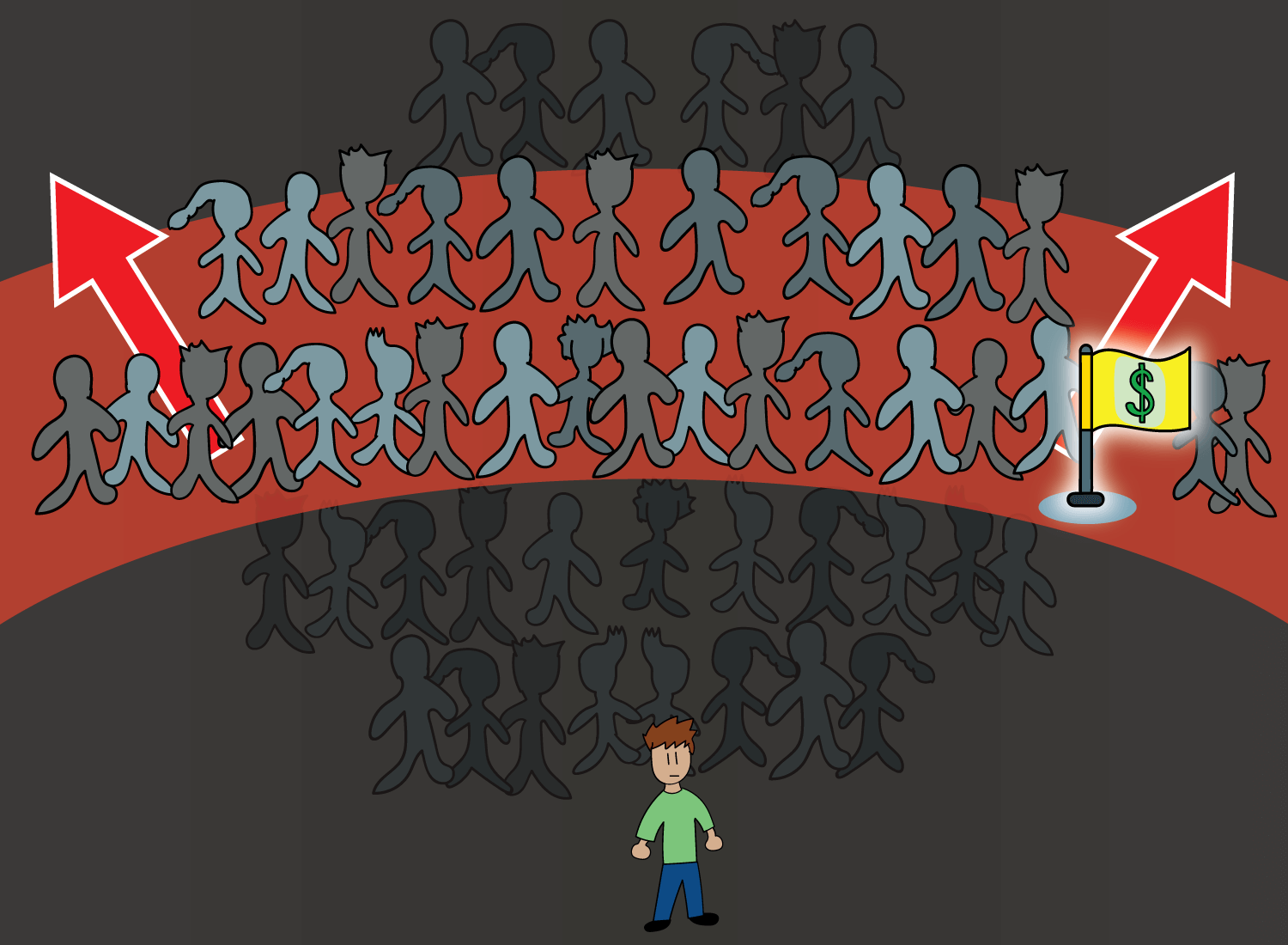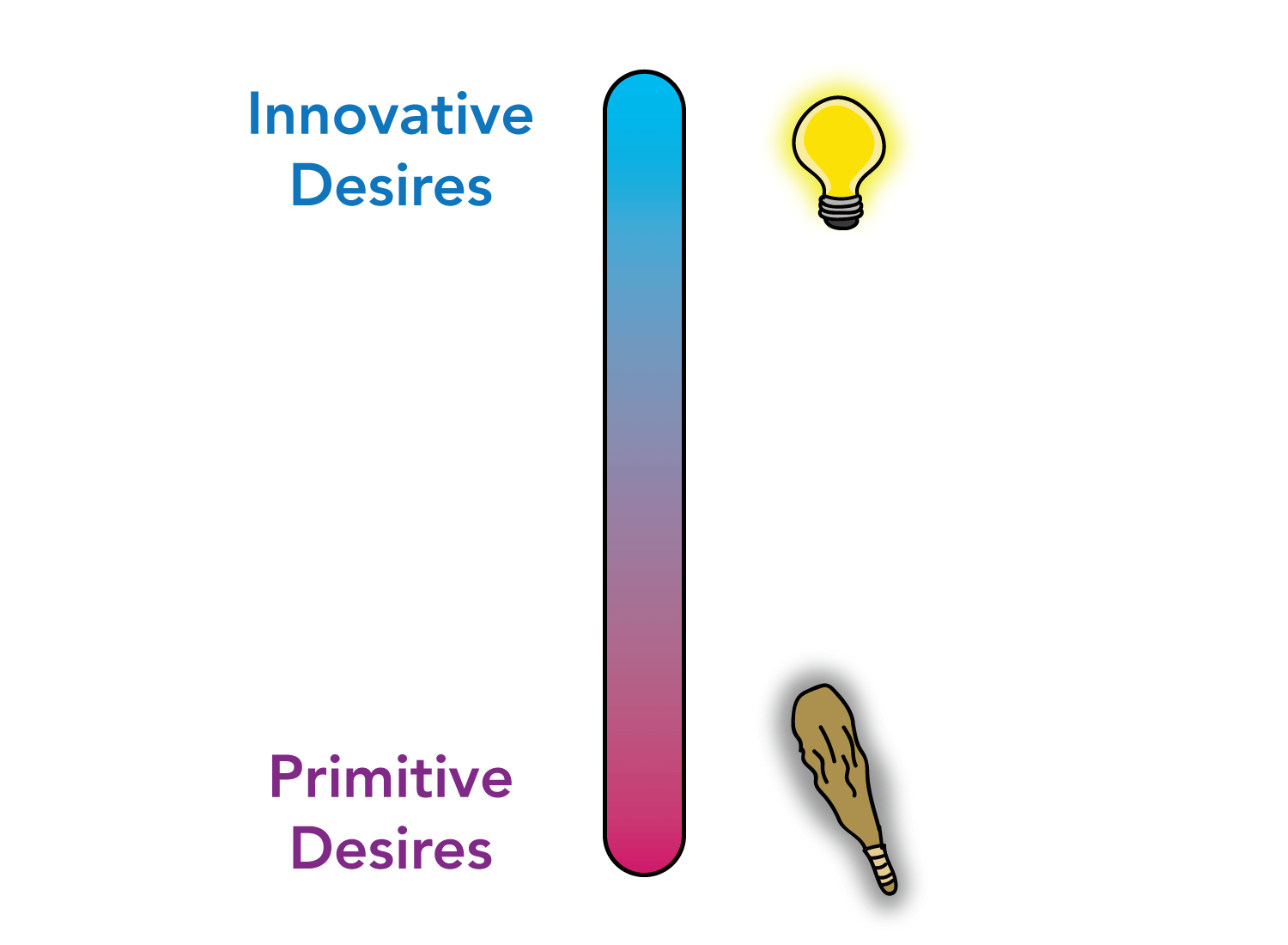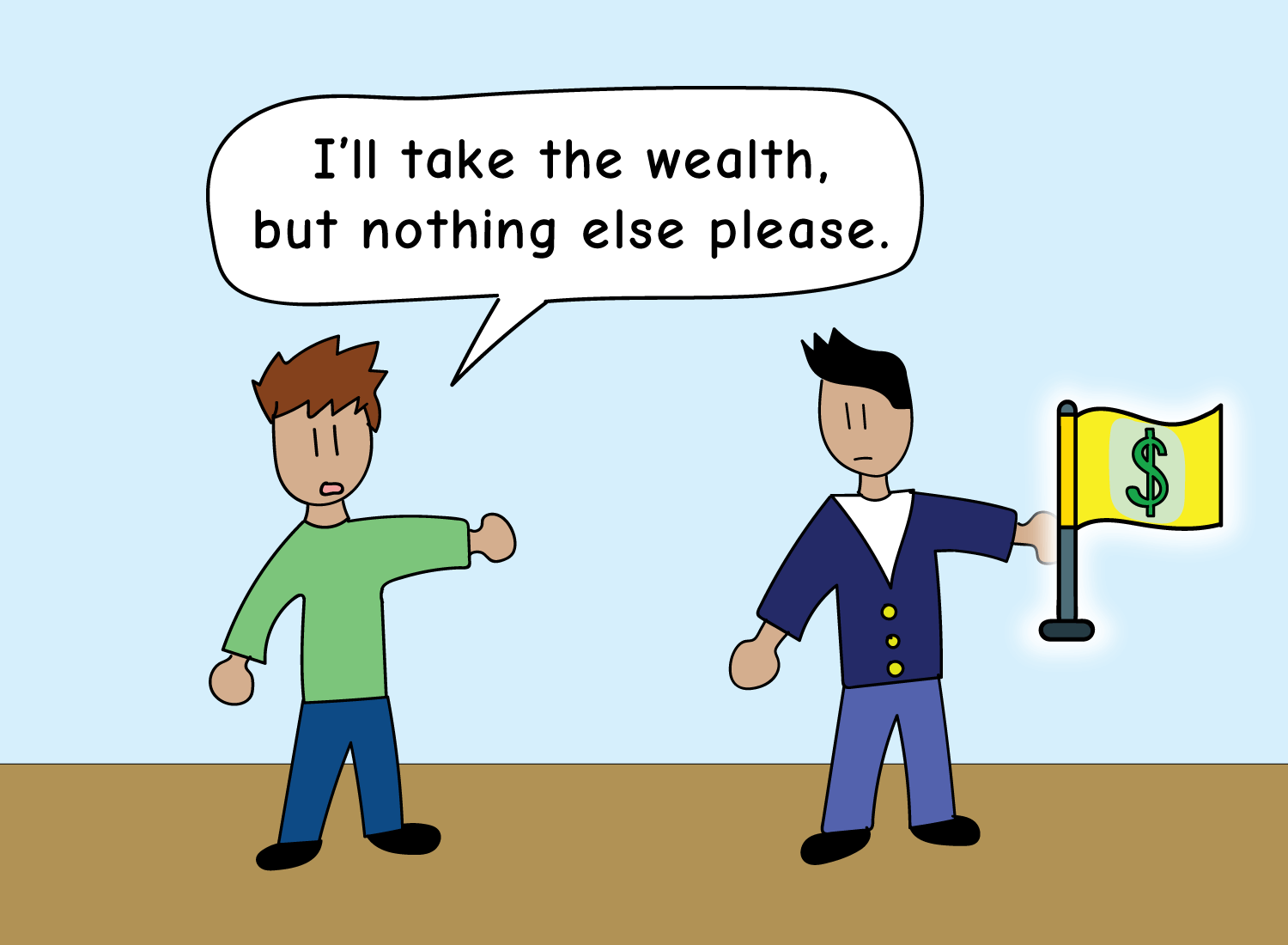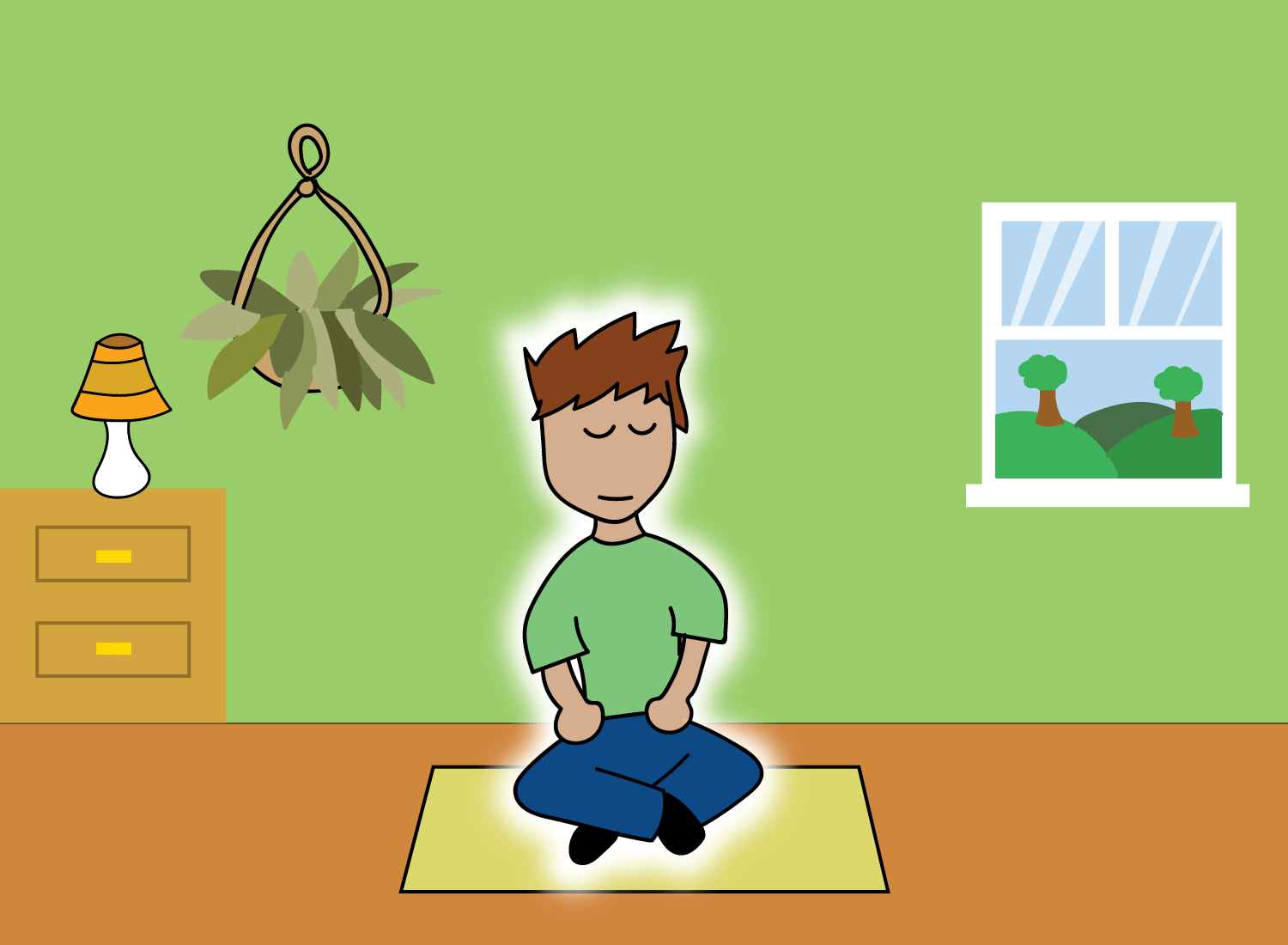Envy Is the Cancer of the Soul
嫉妒是灵魂的癌症
There are certain struggles that have their moment in the spotlight. Things that were once very difficult to admit become acceptable to reveal.
有些挣扎在聚光灯下有其时机。那些曾经很难承认的事情现在变得可以公开了。
Problems with vulnerability are one example:
对于脆弱性的问题是一个例子:
Shame is another: 羞愧是另一个
And even a harrowing topic like depression is encouraged to discuss:
即使像抑郁这样痛苦的话题也被鼓励讨论:
But there’s one struggle that is becoming more and more problematic, yet it’s still considered a taboo to openly admit:
但是,还有一个问题逐渐变得越来越棘手,然而公开承认它仍然被视为禁忌
The problem of envy. 嫉妒的问题。
Revealing that you struggle with this emotion won’t yield much sympathy. Unless you’re discussing this with a close friend, we tend to judge someone who describes themselves as an envious person. There’s something off-putting about it, and we often feel that it’s a problem you should keep to yourself.
透露你在与这种情绪作斗争是不会得到多少同情的。除非你正在与一个亲密的朋友讨论这个问题,否则我们倾向于对自称是一个嫉妒他人的人的人进行评判。这确实令人反感,我们通常认为这是一个你应该自己保守的问题。
However, envy is one of the great struggles plaguing humanity today, and it’s only getting worse. The conditions that allow envy to thrive are being accentuated by technological progress, yet our norms have not updated to accommodate this reality. It should be just as acceptable to talk about envy as it is anxiety, especially because the former often feeds into the latter. Yet we keep our mouths shut in fear of being judged, and allow it to eat away at us over time.
然而,嫉妒是困扰人类当今的一大痛点,而且只会越来越严重。允许嫉妒蔓延的条件正由于科技进步而被加剧,但我们的社会规范却未能与之相适应。谈论嫉妒应该和谈论焦虑一样普遍和可接受,特别是前者往往会导致后者。但我们出于担心被评判而闭口不言,任由它慢慢蚕食我们。
This is my attempt to dissect the shit out of envy, and to go deep into the problem without any preconceived notions. How exactly does envy arise, and what about today’s world makes this especially problematic? How do we manage its presence, and diminish it as much as possible?
这是我试图深入剖析嫉妒这个问题,不带任何先入为主的概念。究竟是什么导致了嫉妒的产生,今天的世界又如何加剧了这一问题?我们应该如何管理和减少嫉妒的存在?
Well, to get to the end, we must start from the beginning.
好吧,要走到终点,我们必须从起点开始。
Let’s jump in. 让我们开始吧。
The Anatomy of Envy 嫉妒的解剖学
Say hello to John. 向约翰打招呼。
John has a pretty good life, but since he’s a human being, what he has today isn’t quite enough. He has visions of a future where he is just a bit happier, just a bit more content.
约翰有一个很不错的生活,但由于他是一个人类,他今天拥有的并不完全足够。他有一些关于未来的幻想,他会更加快乐,更加满足。
These visions are what we refer to as desires, and while he has many, he’s been trying to narrow them down lately. After some intense self-reflection, he’s come to realize that everything can be reduced down to one thing:
这些愿景就是我们所说的欲望,虽然他有很多,但最近他一直在努力将它们缩小。经过一些深入的自我反思,他终于意识到,一切都可以归结为一件事:
Fair enough, John. It’s not an especially unique thing to want, but hey, it’s honest.
公平 enough, 约翰。这并不是一件特别独特的事情,但是嘿,它很诚实。
Let’s represent John’s desire for wealth as this dollar-sign goalpost, which we will refer to as the “desired good.”
把约翰对财富的渴望表示为这个美元符号目标,我们将其称为 "所需商品"。
It may seem like John and the desired good are the only two players here, but in reality, there’s a lot happening.
乍看之下,约翰和所追求的美好似乎是唯二的参与者,但事实上,这里发生了很多事情。
Once a desire is set, John’s view of the world shifts a few degrees closer to that want. When he looks out and sees people, he will position them according to where they stand in relationship to his goalpost. The further out they are, the more “unattainable” they seem, and the closer they are, the more reachable they feel:
一旦一个愿望被确立,约翰就会把世界观稍微转向那个愿望。当他观察他人时,他会根据他们与他的目标的关系来定位他们。他们越远,就越 "难以企及"; 他们越近,就越容易达成。
And here we arrive at the first rule of envy:
那么我们到达了嫉妒的第一条规则:
You will be envious of those that have reached your desired state, but are not too far removed from it. Those that are too far out will be sources of inspiration, not envy.
你会嫉妒那些已经达到你所追求的状态的人,但他们并没有太远离你。那些已经太过于远离的人会成为你的灵感源泉,而不是嫉妒的对象。
So in the context of John’s landscape, it will look something like this:
所以在约翰的景观中,它看起来会像这样:
People like Elon Musk, Jeff Bezos, or Bill Gates will be in that green area. Their wealth is at an incomprehensible level in John’s mind, so instead of being envious of them, he will buy their biographies and seek to learn from them. The people that have taken John’s desire and achieved many multiples of it will feel like distant mentors as opposed to close rivals.
像埃隆・马斯克、杰夫・贝索斯或比尔・盖茨这样的人将在那个绿色区域。在约翰看来,他们的财富达到了难以理解的水平,所以他不会嫉妒他们,而是会购买他们的传记,并努力向他们学习。那些实现了约翰的愿望并取得了多倍成就的人,他们会像远程导师一样,而不是亲密的竞争对手。
On the other end, the people that are in neither the green nor red areas won’t garner much of John’s envy too. Either John is already as wealthy as they are, or he simply doesn’t view these people through the lens of wealth to begin with. Healthy friendships and relationships tend to live in this zone, as there is nothing in particular that is desired from them (outside of having a good time).
另一方面,既不在绿色也不在红色区域的人也不会引起约翰太多的羡慕。或者约翰已经和他们一样富有,或者他根本就没有通过财富的视角来看这些人。健康的友谊和关系往往存在于这个范畴中,因为没有什么特别的东西是他们需要的 (除了享受美好时光)。
That leaves us with this terrible red zone. The space where the potential for envy is at its highest:
这就剩下了这个可怕的红色区域。潜在的嫉妒感最高的空间:
So the big question is: Out of all these people, how does envy choose who to target? After all, John will not be envious of everyone here; only a handful of them will personify his struggle with the emotion.
那么,最大的问题是:在所有这些人中,嫉妒是如何选择目标的?毕竟,约翰不会嫉妒在座的每个人;只有少数人会体现出他与这种情绪的斗争。
Well, it turns out that envy has a few guidelines it likes to follow, and someone who satisfies any one of them will make them a prime target (which I will now refer to as the “rival”). Let’s review what they are:
嗯,事实证明,嫉妒有几个它喜欢遵循的指导方针,满足其中任何一个的人都会成为首要目标 (我现在称之为 "竞争对手")。让我们来复习一下它们是什么:
(1) You once had a shared history with the rival, but now the rival seems to be way ahead of you.
(1) 你曾与这个竞争对手有共同的历史,但现在这个竞争对手似乎已远远领先于你。
Envy thrives in the distance between you and someone you once knew.
嫉妒在你与曾经认识的某人之间的距离中茁壮成长。
This is because a shared history implies some form of equality, a starting point where both of you had a blank slate. In John’s case, it could his high school friend, his old college roommate, or his co-founder of the failed company they started. If any of these people then went on to reach the level of success that John now desires, then John will feel that he missed out on something that the other person clearly took advantage of.
这是因为一个共同的历史意味着某种形式的平等,一个双方都从头开始的起点。在 John 的案例中,可能是他的高中好友、他的大学室友或者他与之共同创办但失败的公司的创始人。如果其中任何一个人后来达到了 John 现在所渴望的成功水平,那么 John 会感到他错过了那个人明显利用了的东西。
Here’s the strange thing: Envy is more likely to arise if you have not kept in touch with the rival during the course of this divergence. In other words, the more opaque the relationship, the stronger the envy. This is because we lack the insight to know just how long and winding the rival’s path actually was, and we instead assume that it was a neat trajectory from Point A to Point B. This makes us feel that we could have done it just as easily, and causes us to envy the rival for having made a decision that we should have made ourselves.1
这里有一件奇怪的事情:如果你在这次分歧过程中没有与对手保持联系,妒忌更有可能产生。换句话说,关系越不透明,妒忌就越强烈。这是因为我们缺乏洞察力,无法知道对手的道路实际有多长多曲折,反而认为它是从 A 点到 B 点的一条笔直的轨迹。这使我们觉得我们也可以同样轻易地做到,因此而嫉妒对手作出了我们自己应该做出的决定。1
This leads me to the next guideline envy uses to choose its targets:
这让我进入了嫉妒选择目标的下一个原则:
(2) A rival’s path to success appears easily replicable.
(2) 竞争对手走向成功的道路似乎很容易复制。
At its core, envy is about attention. The more you pay attention to the rival and what they’re doing, the greater your envy toward them will grow. And there’s nothing that commands more attention than a neatly advertised path to success.
从根本上说,嫉妒是关于注意力。你越关注对手及其所做的事,对他们的嫉妒就越大。而一条整洁宣传的成功之路是最引人注目的。
When someone’s showing you how easy it is to do what they have done, you feel inclined to accept their guidance. But by adopting their strategies, you also outsource your judgment to them, which means that you invest much of your precious attention to their path.
当有人向你展示他们的做法有多容易时,你会倾向于接受他们的指导。但是通过采用他们的策略,你也将你的判断外包给了他们,这意味着你将宝贵的注意力投资在他们的道路上。
Whenever you do this, you tend to lose confidence in your capabilities, and any loss of confidence usually opens the floodgates to envy:
每当你这样做,你就会失去对自己能力的信心,而任何信心的丧失通常都会导致嫉妒的泛滥
Envy loves it when you’re in the “danger zone”, and that happens the more you look outward to solve your problems as opposed to inward. And when it comes to looking outward, envy abides by this final guideline to choose the optimal rival:
嫉妒喜欢当你处于 "危险区域" 时,这种情况发生在你把目光投向外部来解决问题,而不是把注意力集中在内心。当涉及将目光投向外部时,嫉妒会遵循这最后一项准则来选择最佳的对手:
(3) The rival seems very relatable to you. You have similar interests, similar outlooks, but the outcomes appear to be wildly different.
这个对手似乎与你非常相似。你们有相似的兴趣,相似的观点,但结果却大相径庭。
Envy thrives on the feeling of “if they can do it, then why can’t I?”
嫉妒建立在 "如果他们可以做到,那为什么我不能" 的感受之上
In many ways, you often see yourself in the people you envy. You believe that you’re just as capable as they are, and are equipped with the same abilities that they also possess. But because of this, you are also disheartened by the fact that you feel so much further behind.
在许多方面,你常常在你羡慕的人身上看到自己。你相信自己和他们一样有能力,拥有与他们相同的才能。但正因如此,你也被自己比他们落后这么多的事实而感到沮丧。
This is why envy tends to be high in any work setting. You are surrounded by colleagues that you once started with, but you may be passed up for promotions while they keep climbing the ladder. Or perhaps you’re an entrepreneur that’s been chugging along for 10 years, but someone who just entered the game last year is already breezing past you.
这就是为什么任何工作环境中嫉妒心往往很高。你周围都是与你同时起步的同事,但他们可能会在晋升时超过你,不断攀登职业阶梯。或者你是一个已经坚持了 10 年的企业家,但有人去年才刚刚进入这个行业,却已经快速超过了你。
In order for there to be a proper point of comparison, there must first be a sense of relatability. In the past, these were the people that you would encounter on a somewhat regular basis, such as family members, classmates, and colleagues. Physical proximity is what gave you transparency into one’s character, and this is how you determined how relatable someone was.
为了进行恰当的比较,首先需要一种相关性的感觉。过去,这些都是你会经常遇到的人,例如家人、同学和同事。物理距离使你能够了解一个人的性格,这也是你如何确定某人是否具有可比性的方式。
Well, to say that things have changed would be the understatement of the century (thus far). We now live in a world where everyone is just one connection away, and when you combine this with the inability to openly discuss envy, you get the perfect shitstorm to smack you in the face.
好吧,说事情发生了变化可能是本世纪 ((至今) 最大的轻描淡写了。我们现在生活在一个人与人之间只有一个连接就能联系上的世界,而当你把这种情况与无法公开讨论妒忌相结合,你就会得到一场击中你面部的完美暴风雨。
How Social Media Made Everyone Famous Envious
社交媒体让每个人都出名嫉妒
All right, now let’s give John an iPhone and any social media app.
好的,现在让我们给约翰一部 iPhone 和任何社交媒体应用。
Prior to giving him the phone, you’ll recall that his landscape looked a little something like this:
在给他手机之前,您可能还记得他的情况大致是这样的:
So after a few months of familiarizing himself with social media, what will his landscape look like after this has become his new normal?
经过几个月熟悉社交媒体后,当这成为他的新常态时,他的处境将是什么样的?
Well, the first noticeable change would be the dramatic increase in people that enter his field of awareness:
那么,首先可以明显察觉到的变化就是他意识范围内的人群数量急剧增加
This makes sense, as the whole purpose of social media is to make the world feel smaller by bringing like-minded people together. But this type of dramatic congregation comes with its costs, and much of it has to do with the type of behavior that social media promotes.
这是有道理的,因为社交媒体的全部目的就是通过把志同道合的人聚集在一起来缩小世界的感觉。但是这种戏剧性的集会也付出了代价,很大程度上与社交媒体推动的行为类型有关。
First off, communication is asynchronous, meaning that conversations are not happening in real-time. People can take time crafting what they want to say, which means that they are editing themselves before any conversation has begun. And whenever someone is given the capacity to edit, they are given the opportunity to pick and choose how they want to present themselves.
首先,交流是异步的,这意味着对话不是实时发生的。人们可以花时间打造自己想要表达的内容,这意味着他们在对话开始之前就已经对自己进行了编辑。每当有人被赋予编辑的能力时,他们都有机会选择如何展现自己。
This leads to everyone showing the polished versions of their lives, or what I call the avatars of their refined selves. Every thought is sculpted to be presentable, and every utterance has the purpose of attracting attention. This makes social media a place where everyone exudes an air of confidence, all while its participants know that there is some distance between what is shared and who they truly are.
这导致每个人都展示他们生活的精心制作的版本,或者我称之为他们精心雕刻的化身。每一个想法都经过润色才能呈现,每一句话都是为了吸引注意力而发出的。这使得社交媒体成为一个人人都展现自信的地方,但参与者也知道他们分享的内容与他们真实的自我之间存在一些距离。
The second cost masquerades as a benefit, which has to do with accessibility. Social media offers the promise of access – that the people who were once unreachable are now people you can connect with. While this may be true on its surface, this promise also has the unintended consequence of making everyone appear relatable. Social media makes the world smaller by making the size of your echo chamber larger, so all of a sudden, everyone around you appears to have similar skills, values, and perspectives as you do.
第二个成本掩藏在好处之中,这与可访问性有关。社交媒体承诺带来可访问性 - 那些曾经无法接触的人现在可以与之保持联系。虽然这在表面上可能是真的,但这一承诺也带来了意想不到的后果,使每个人看起来都很容易相处。社交媒体通过扩大你的回声室来缩小这个世界,所以你身边的每个人似乎都具有与你相似的技能、价值观和观点。
So people that were previously deemed “unreachable” are now “relatable.” And as we noted earlier, the more relatable someone appears, the more we compare ourselves to their advertised sense of progress. This means that the territory of envy extends outward in the landscape, enveloping more people as it grows in size.
所以之前被视为 "无法接触" 的人现在变得 "可接触" 了。我们之前提到,一个人越可接触,我们就越容易将自己与他们所展示的进步状况进行比较。这意味着羡慕的边界在不断扩大,包裹进越来越多的人。
This may be a more cynical view here, but I feel that the “everyone is now accessible” promise is bullshit. If that truly were the case, social media companies wouldn’t prominently display follower counts to signal status, which are the parameters people use to decide who they want to engage with in the first place. For the most part, it’s an illusion that is held together by the prominent display of secondary connections, which makes everyone feel that they are much more connected than they initially thought.2
这可能是一个更加愤世嫉俗的观点,但我觉得 "所有人现在都可以访问" 的承诺是废话。如果这种情况真的存在,社交媒体公司就不会明显显示关注者数量来传达地位 , 这是人们最初决定与谁互动的参数。大多数情况下,这是一种幻觉,是由显著的次要连接维系的,让每个人觉得他们的联系要比最初想象的更密切。 2
All this does is kindle the fire of envy, as the people that have what you desire seem to be everywhere. Not only that, they appear to have done it with relative ease because that’s what is generally advertised. Any announcement of success on social media comes with a strong degree of survivorship bias, but since we don’t follow people that have failed at their endeavors, we tend not to see it.
这只会点燃嫉妒之火,因为拥有你所渴望的东西的人似乎无处不在。不仅如此,他们似乎是相对容易地做到的,因为这通常是被宣传的。社交媒体上任何成功的公告都伴有很强的幸存者偏差 , 但由于我们不关注那些在追求目标过程中失败的人,我们往往无法意识到这一点。
This is the battle that we face every day when we go on our phones, and when we compare ourselves against static profile pictures with polished thoughts. To make things worse, we face this problem silently, letting it eat away at us without acknowledging the struggle with anyone else. It’s a cancer that eats away at the soul, and just like cancer itself, it grows largely undetected, only to balloon at the end to consume you whole.
这就是我们每天使用手机时面临的挑战,我们将自己与修饰过的个人资料照片进行比较。更糟糕的是,我们默默地面对这个问题,让它不断蚕食我们,而不愿意向他人承认这种挣扎。它就像癌症一样,逐渐侵蚀我们的灵魂,只有在最后才会变得不可控制,吞噬我们整个人。
Fortunately, we are also equipped with the tools to fight this battle, and eventually win. Let’s go into how we can do just that.
幸运的是,我们也具备了打败这场战争的工具,最终获胜。让我们探讨如何做到这一点。
How to Get Rid of Envy
如何摆脱嫉妒
To recap, envy results from the interplay of three things:
总的来说,嫉妒源于三个因素的交织:
(1) A desired good, 一种所需商品,
(2) A rival, and (2) 竞争对手,和
(3) A landscape of potential rivals.
(3) 潜在竞争者的景观。
When it comes to eliminating envy (or greatly diminishing it), it turns out that these three elements are the very things we need to address. By investigating each part on its own, we will be more aware of how they fan the flames of envy, and what we can do to quell that fire over time.
当涉及到消除妒忌 (或大大减少它) 时,事实证明这三个元素正是我们需要解决的问题。通过分别研究每一个部分,我们将更清楚地认识到它们如何煽动妒忌的火焰,以及我们可以采取什么措施来随时间而减弱这种火焰。
Let’s start with the root of it all:
让我们从根源开始:
(1) Question the desired good.
(1) 质疑所追求的善。
Desire is the birthplace of envy, but remember that not all desires are created equal.
欲望是嫉妒的源泉,但请记住,并非所有欲望都是平等的。
That may sound obvious, given that the desire to rob a bank has a different texture than the desire to eat more vegetables. However, we often forget that the things we want can be plotted against a spectrum that looks something like this:
这听起来很显而易见,因为抢劫银行的欲望与吃更多蔬菜的欲望具有不同的纹理。然而,我们常常忘记,我们想要的东西可以被绘制成一个类似这样的光谱:
Our desires may feel like one gigantic blob, but in reality, they can be individually parsed and plotted against this spectrum.
我们的欲望可能感觉像一个巨大的整体,但实际上,它们可以被单独分析和划分在这个光谱上。
The innovative desires are the ones that cater to the better angels of our nature. The ones that foster creativity, well-being, and are tailored to your unique mindset and life experiences. The primitive desires, of course, are the base-level wants that cater to the lowest parts of our nature. They are thoughtless, unoriginal, and anyone with a functioning human brain will want them.
创新的欲望是迎合我们本性中更高尚的部分。它们培养创造力、健康和幸福,并针对你独特的心态和生活经历量身定制。当然,原始的欲望是迎合我们本性中最低层需求的基本层面的想望。它们是无思考的、缺乏原创性的,任何拥有正常人类大脑的人都会渴望它们。
The rule here is that the lower your desire is on this spectrum, the more likely it is that envy will have power over you.
这里的规则是,你在这个光谱上的欲望越低,嫉妒就越可能对你有影响。
The desire to be rich, famous, or have status is so commonplace that there will always be someone to personify what you want. If you want to have more followers, then guess what, you will envy the next “relatable” person that comes along with the following you’re looking for. The same goes for wealth. These primitive desires tend to have the quality of never being enough, as the goalpost moves whenever it has a specific person to move it to.
想要变得富有、著名或拥有地位是如此常见,总会有人来体现你所渴望的东西。如果你想拥有更多的追随者,那么你就会嫉妒下一个 "亲和力" 满分的人,因为他就是你寻找的那个人。对于财富也是如此。这些原始的欲望往往永远无法满足,因为目标总是随着有特定的人而不断移动。
Instead, it’s best to cluster your desires toward the higher area of the spectrum. These are the innovative desires that cannot be externally validated or tied to another person’s progress, and are unique to your personal experiences. For example, “know more than I did yesterday” or “learn something interesting” are things that can only be tracked by your inner scorecard. No one can tell you how you’re doing, nor can they make you feel inadequate by numerically advertising their progress.3
相反,最好将您的欲望集中在光谱的较高领域。这些是创新的欲望,无法从外部得到验证或与他人的进步挂钩,而是独特于您的个人经历。例如,"比昨天知道更多" 或 "学习一些有趣的东西" 是只能由您的内在计分卡来跟踪的事物。没有人可以告诉你你的表现如何,也没有人可以通过数字广告自己的进度来让你觉得不称职。3
In John’s case, he needs to take a good look at why he has this burning desire to get fabulously rich, and see how that’s going for him. If he finds that envy is a persistent problem, then it’s time for him to upgrade that desire to something more sophisticated and tailored. That way he will stop looking outward to gauge his sense of progress, and will learn how to use his inner compass instead.
对于约翰来说,他需要仔细思考为什么他如此渴望获得巨大财富,并观察这种愿望的实现情况。如果他发现嫉妒是一个持久的问题,那么是时候将这种愿望升级到更复杂和定制的层面了。这样他就不会再向外寻找进步的标准,而是学会使用内心的指引。
(2) Reframe the (imagined) dynamic you have with your rival.
(2) 重新定义你与竞争对手的 (想象中的) 关系动态。
Whenever you’ve pinpointed a rival that you’re consistently envious of, here’s a thought experiment worth running:
只要你确定了一个你一直羡慕的竞争对手,就可以运行一个值得考虑的思维实验:
If that person didn’t possess the desired good, what would you think about him/her?
如果那个人没有所需的商品,你会怎么看待他 / 她?
Chances are, you two would probably get along quite well. After all, one of the conditions of envy is that there is a high degree of relatability between you both, so if you ever had the chance to meet, you would likely have lots to talk about. You would find that there’s not so much distance between you and the rival as you once imagined.
很可能你们两个会相处得很好。毕竟,羡慕的一个条件就是你们之间有很强的相似度,所以如果你们有机会见面,你们可能会有很多可聊的。你会发现,你和这个竞争对手之间的距离并没有你之前想象的那么远。
Ultimately, you’ll realize that there is nothing about the rival as a whole that you want to become. You’re just envious of one particular element, which is that the rival possesses your desired good. But outside of that, you wouldn’t want much else. You’re largely okay with being you.
最终,你会意识到你并不想成为整个对手的样子。你只是嫉妒对方拥有你渴望的东西。除此之外,你也不想变成其他样子。你大部分时候都接受自己的样子。
This reveals that you don’t want that person’s life, you just want what you desire. So rather than being envious of a person you don’t want to be in the first place, you can focus on fulfilling what you want for yourself.
这表明你不想要那个人的生活,你只想要你所渴望的。所以,与其羡慕你本来就不想成为的人,不如专注于实现你自己想要的。
This leads nicely into the final point:
这很好地引入了最后一点:
(3) Take time to block all incoming noise from potential rivals. Focus on your own life.
(3) 花时间阻隔所有来自潜在竞争对手的噪音。专注于自己的生活。
Envy is at its highest when too much external noise has entered your mind.
当你的心中充斥着过多的外界噪音时,嫉妒就会达到最高点。
When this happens, the best thing to do is to cloud out the entire landscape, and shut it all down.
当这种情况发生时,最好的做法是遮蔽整个景观,将其全部关闭。
In today’s world, people do this in the form of digital detoxes or some variant of that. But at its core, it’s about shifting every ounce of your attention toward the things that only you can do. Challenging work that stretches the mind. Mindfulness practices that require you to look within. These are the things that are impervious to external noise, and allow you to be fully immersed in your own headspace.
在今天的世界中,人们以数字休养或其变体的形式进行这种做法。但从根本上来说,这是关于将你全部的注意力转移到只有你才能做的事情上。充具挑战性的工作能拓展头脑。要求你内省的正念实践。这些事物不受外界噪音的影响,让你完全沉浸在自己的思维空间中。
The interesting thing is that we already know which of our behaviors will reliably provoke envy. For example, we know that going on social media will make us feel shitty, but fuck it, we go on it anyway. It’s the same twisted mechanism we have of picking at a scab knowing that it’s going to cause long-term damage. We do it anyway because the power of the habit overrides the pain of the experience.
有趣的是,我们已经知道哪些行为会可靠地引起嫉妒。例如,我们知道使用社交媒体会让我们感到糟糕,但是管它呢,我们还是会使用。这就是我们刻意去抓挠痂疤的扭曲机制,明知会造成长期伤害,但仍这么做。我们这样做是因为习惯的力量压倒了体验的痛苦。
Envy is such an enduring emotion because it lives in the one habit that defines the human condition: our desire for external validation. We will put ourselves through a self-doubting hell just to know that we are seen, and if another person’s path to being seen seems a bit easier, we will envy that person’s journey. But of course, this constant state of comparison just digs you into a deeper hole.
羡慕是一种持久的情感,因为它存在于定义人类处境的一种习惯中:我们渴望外部认可。我们会将自己置于对自我产生怀疑的地狱之中,只为知道自己被看见,如果别人获得被看见的道路似乎更轻松一些,我们就会嫉妒那个人的历程。但当然,这种永恒的比较只会把你陷得更深。
The only way out is to temporarily break this habit, and to dedicate all your attention inward for a duration of time. To stop gazing into another person’s home, and instead work on cleaning up your own. And after you’ve done that, it’s important to stay in it for a while and focus on nothing else. After all, it is only in your own house where your inner judgment is cultivated.
摆脱这种习惯的唯一出路是暂时打破它,并在一段时间内将全部注意力集中在内心上。停止窥探他人的房子,而是专注于清理自己的房子。在完成这一步之后,重要的是要持续一段时间,集中精力,不要分心于其他事情。毕竟,只有在自己的房子里,内心的判断力才能得到培养。
At a certain point, however, we must leave the home and interact with the rest of the world, which is undoubtedly an inspiring place. There are so many amazing people and stories out there, but in the end, they’re only as amazing as we allow them to be. Envy is the greatest roadblock to recognizing this, and given our inability to speak openly about it, I’m convinced that it’s going to be one of the great mental health issues of our time.
然而,在某一时刻,我们必须离开家庭,与外界互动,这无疑是一个充满启迪的地方。外面有如此多令人惊叹的人和故事,但最终,它们只能达到我们所允许的程度。羡慕是阻碍我们认识这一点的最大障碍,鉴于我们无法公开谈论它,我相信它将成为我们这个时代最重大的心理健康问题之一。
I started this post with the intention of explaining what envy was, but am now realizing that the real message is about making it okay to admit when it’s a problem. To make it clear that the only reason I’ve thought so much about envy is because I’m not immune to it either.
我开始这篇文章的目的是解释什么是嫉妒,但现在我意识到真正的信息是关于承认嫉妒是一个问题。让大家明白,我之所以如此关注嫉妒,是因为我自己也不能免于此。
The world is connected in a manner that has no precedent, and perhaps it’s time we stop pretending that we’re equipped to handle that reality. In order to accept what we are up against, we must first admit the limits of our capabilities, because then we know what we need to bridge the gap.
这个世界以前所未有的方式连接在一起,也许是时候停止假装我们有能力应对这种现实了。为了接受我们面临的挑战,我们首先必须承认自身能力的局限性,因为这样我们才知道需要什么来弥补差距。
To do this effectively, there must be dialogue, which is the key to updating the norms we have around certain subjects. By arming ourselves with the capacity to talk about it freely, we finally have what it takes to fight the long battle against envy: the age-old cancer of the soul.
要有效地做到这一点,需要进行对话,这是更新我们围绕某些话题的规范的关键。通过武装自己拥有自由讨论的能力,我们终于拥有了打败内心深深的嫉妒这一老灰尘病的武器。
_______________
_______________
Related Posts 相关文章
Out of all the worthwhile problems in life, envy is not one of them:
生活中所有有意义的问题中,嫉妒并不算其中之一
Thankfully, Life Is Full of Problems
幸好,生活充满了问题
External validation is desired when you lose track of who you are:
当您失去对自我的了解时,需要外部验证:
The Staircase of the Self
自我的楼梯
A reminder to gauge progress using your inner scorecard:
用你内心的记分卡来评估进度的一个提醒:
